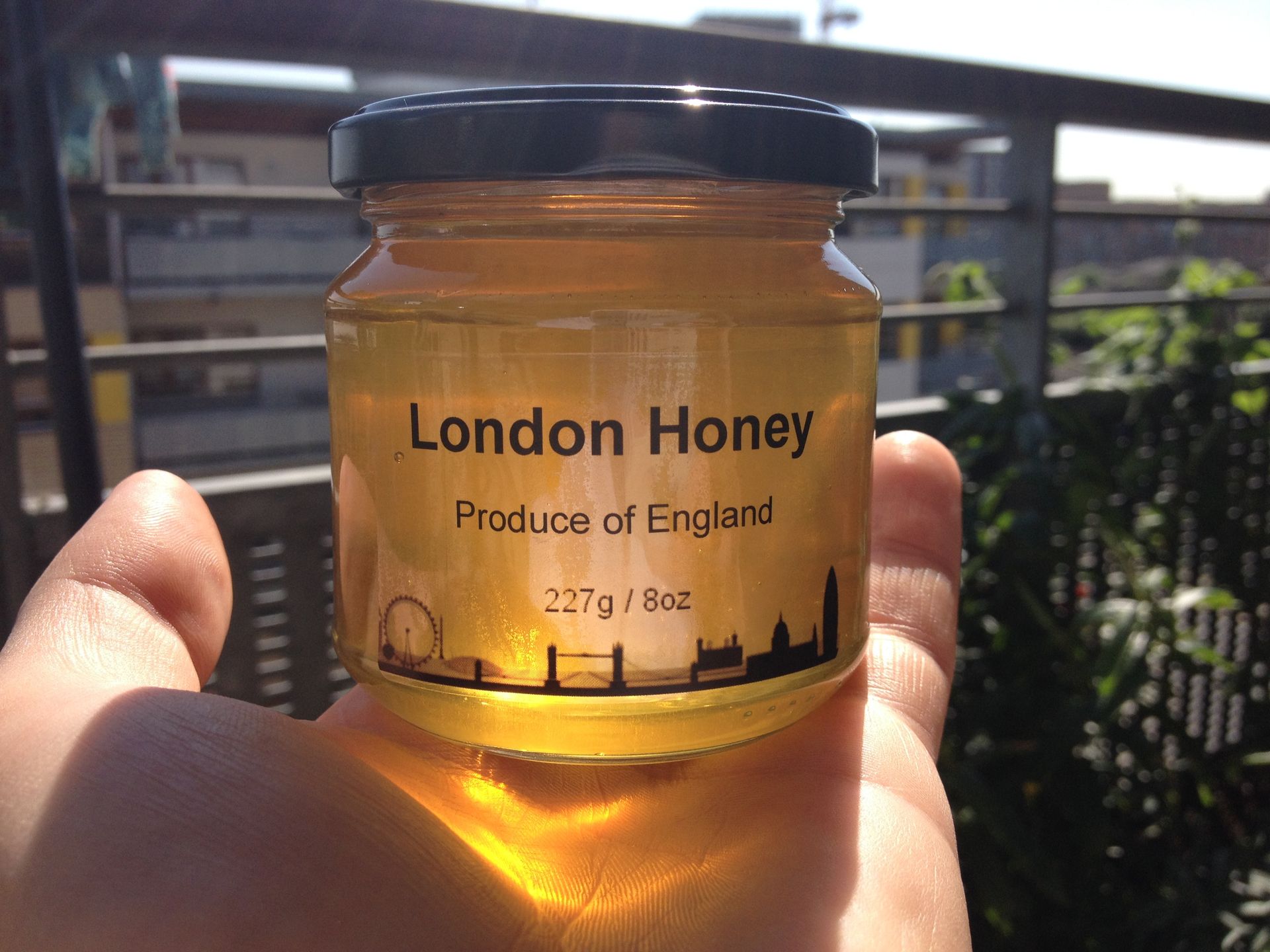
About us
Api:Cultural takes its name from the words Apis (meaning bee) and Culture (as in Human society and Human activities)
At Api:Cultural were passionate about bees and other pollinators. We work with communities and businesses to help struggling pollinators through habitat creation projects, delivering pollinator surveys and training courses. Whilst our main focus is on wild bees we do also deliver sustainable urban bee keeping projects to a small number of select clients.
About what we do
At Api:Cultural were all about people and bees working together for a healthy environment that benefits both human society and insect pollinators.
Bees and Pollinators are vital for a healthy ecosystem and a healthy environment is crucial for the health and well-being of Human society. Without them life would be very different and difficult so we really owe it to the pollinators and ourselves to do right by them.
Bees and other pollinators face serious challenges in the modern world. We've lost 98% of our flower rich meadows since the the last 100 years and despite attempts to create new habitats to replace this we've only managed a meagre 0.03% increase. This along with poor bee keeping practices, over reliance on pesticides and a changing climate mean many pollinators are struggling to survive.
At Api:Cultural we want to work with London businesses, community groups and education establishments to address these issues and make London a city fit for pollinators and people to live side by side.
We offer 4 main services:
1. Wild pollinator conservation. We offer monitoring surveys, advice and consultation around wild pollinator conservation, including planting for bees and creating bee habitats.
2.Consultation, training and management solutions for more sustainable urban bee keeping. We do not offer to install hives in central London as this is not sustainable.
3. Education in schools and colleges about pollinators
4. Organising corporate volunteering activities for businesses which want to help plant for pollinators.
Our experienced staff can also assist in writing funding applications for grants for pollinator conservation projects.
At Api:Cultural our qualified ecologists and horticulturists offer sound ecological advice on planting and habitat creation for pollinators including domestic gardens, communal amenity planting schemes and roof installations.
Our experts can advise about homes for bees too. We offer solitary bee habitat installation design service and can fabricate and install small or large scale installations to suit your needs and budget.
Our experienced bee keepers can advise on how to sustainably keep Honey bee hives in urban environments, reducing your impact on wild pollinators whilst keeping bees for multiple benefits. We can undertake risk assessments, deliver training and tuition in keeping bees and offer a managed solution.
Our thorough and comprehensive risks assessment process includes a detailed look at the forage availability of your area, numbers of competing hives in your vicinity and other factors which may impact your bees.
Our bee keepers have years of experience behind them and have a wealth of knowledge regarding best practice urban bee keeping.
Due to the dangerously unsustainable numbers of Honey Bee Hives being placed in Central London in recent years we
DO NOT offer to install Bee Hives in the city. We have in fact reduced our hive numbers by 2/3 since 2016 and encourage other beekeepers to examine their own colony numbers and how sustainable they are.
Our vibrant education practitioners are experienced at dealing with young people of all ages and excel at spreading their enthusiasm for all things that buzz and visit flowers. Were happy to visit your school to talk to children about bees and other pollinators, bring along live bees in our observation hive.
We can also advise on bee keeping and gardening for bees with children.
Our senior consultant Mark has contacts with many local Authorities, land owners and community organisations across London who we can match corporates to and facilitate planting projects. We can organise risks assessments, project materials, Tools, PPE, Local media coverage and refreshments to make your corporate volunteering day a fun and memorable one.
About our founder Mark Patterson.
Mark grew up in the North East of England and developed a passion for the natural environment from a young age. This interest included gardening for pollinators which was fuelled by volunteering at a local wildlife community garden.
By age 16 Mark attained several local, regional and national awards in recognition of his outstanding contributions to nature conservation including the Evelyn Kinnerfick memorial award, Gateshead Youth Award, Fred Grey Memorial Award and the RSPB Wild Places award for his ecological study of the Derwenthaught wetlands.
After completing a National Diploma in Agriculture, Land use and recreation which included a practical Horticultural course Mark went on to study for an Honours Degree in Countryside Management and Ornithology at Kingston Upon Hull University - an ecology based course of study. It was during this time at University that mark was introduced to bee keeping by a fellow student.
As senior Consultant Mark has amassed over 26 years of experience in the fields of nature conservation and ecology. His past professional positions include marine biologist/ranger on the Farne islands national nature reserve, Countryside Ranger for a local Authority, Nature reserve manager for Durham Wildlife services, Worked on a bird of prey Reintroduction program with the RSPB , Freelance consultancy and 11 years as a project and program manager for a national Environmental regeneration Charity, Groundwork.
Having assisted others with their beekeeping for several years Mark began bee keeping on his own in 2010 having attended an introduction course and a seasons mentoring. Since then he has volunteered extensively for Bee keeping associations, serving as elected committee official and Trustee to the LBKA, taught courses and organised forage planting activities for the bee keeping community he serves. Mark spent 3 years working for DEFRA as a seasonal Bee Inspector and currently cares for around 30 colonies of honey bees, 10 of which are his own.
Mark currently posses the BBKA Bee basic certificate, BBKA Honey bee management certificate, several of the BBKA modular exam certificates and the General Husbandry certificate. Mark has extensive training and experience in notifiable bee diseases diagnosis and management.
As well as Honey Bees Mark is also highly knowledgeable about Solitary bees and Bumblebees and teaches Bee identification courses for the Field Studies Council as part of the nationwide BioLinks program.
Some examples of our work
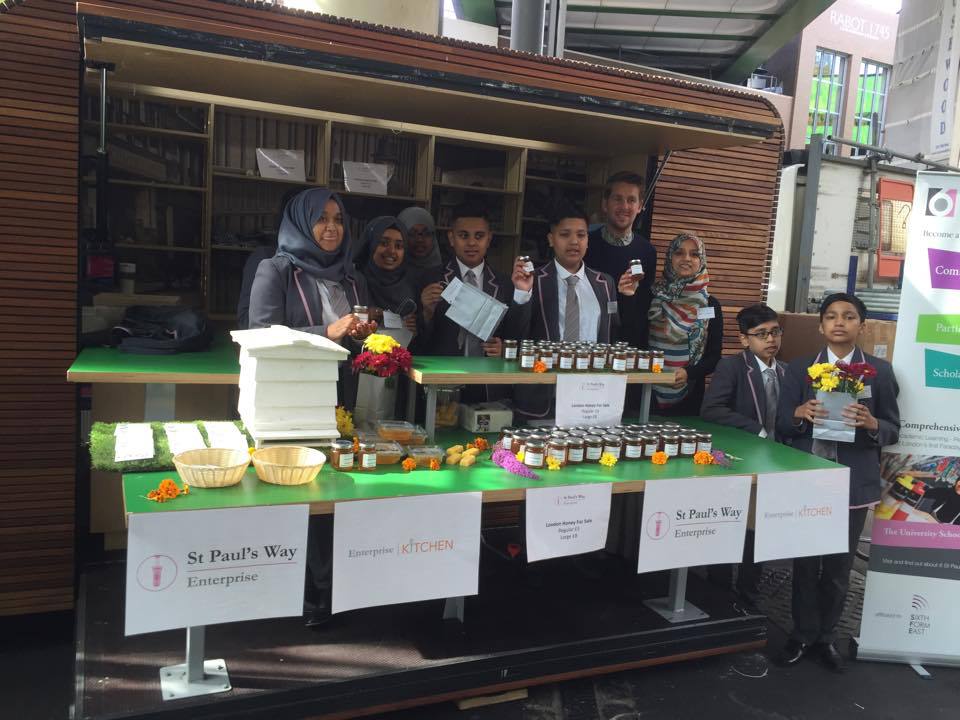
Above: Pupils from St Paul's Way Trust School man their honey stall at Borough Market lead by Api:Cultural senior consultant Mark Patterson
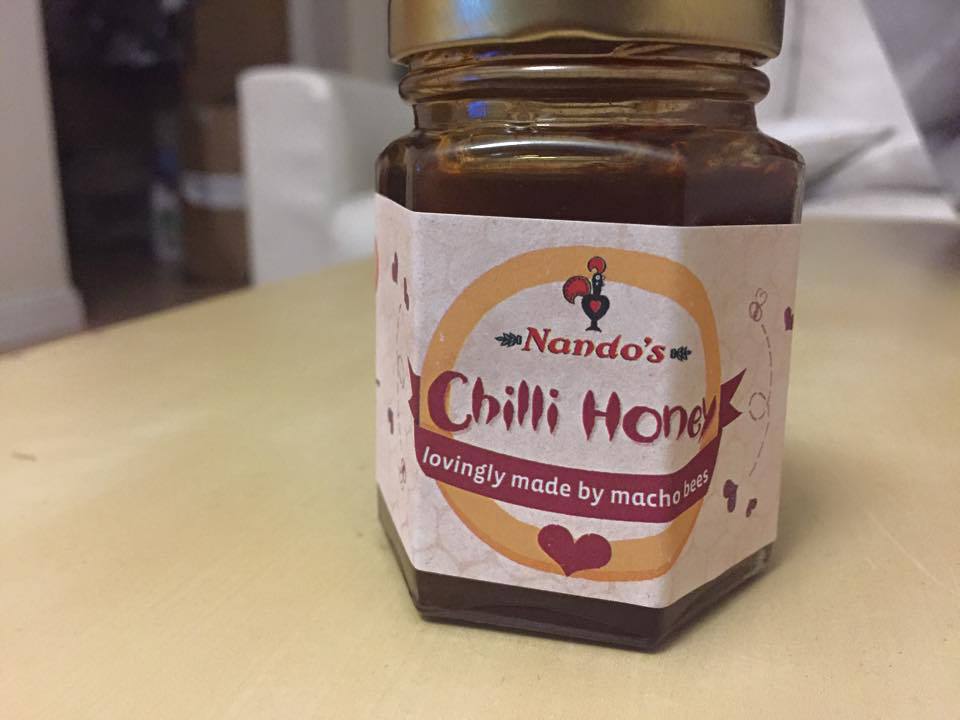
Above: Roof top London Honey produced for Nando's restaurants. This honey is produced by our hives on the roof terrace of their UK head quarters. This Honey is being used in their test kitchen, experimenting with new recipes and a limited edition 100 jars are being given as gifts to outstanding employees as well as corporate clients and suppliers.
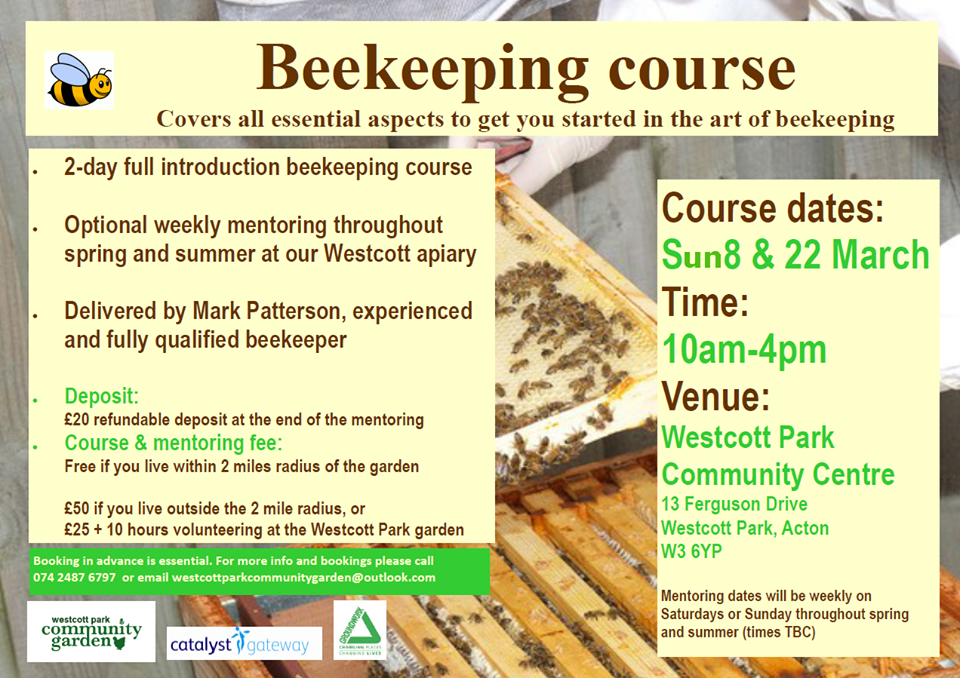
Above: A bee keeping course delivered by our senior consultant Mark Patterson in 2015 for Catalyst Housing association tenants in West London.
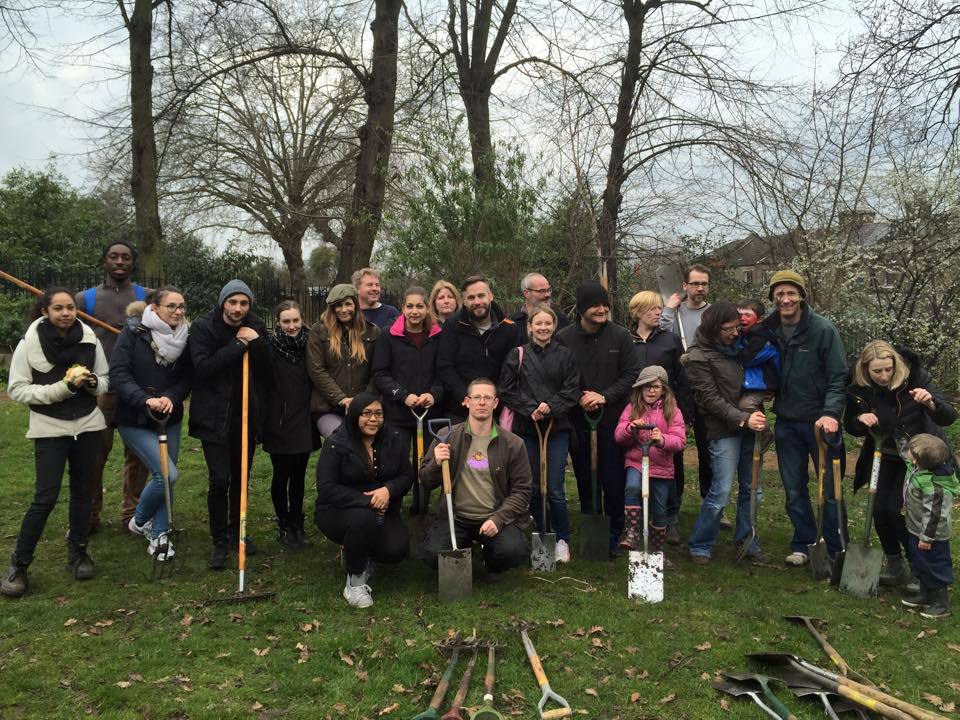
Above: A corporate volunteering activity organised for the London Bee keeping Association and Nando's staff in March 2015. Volunteers planted a South London community garden with pollinator beneficial plants.
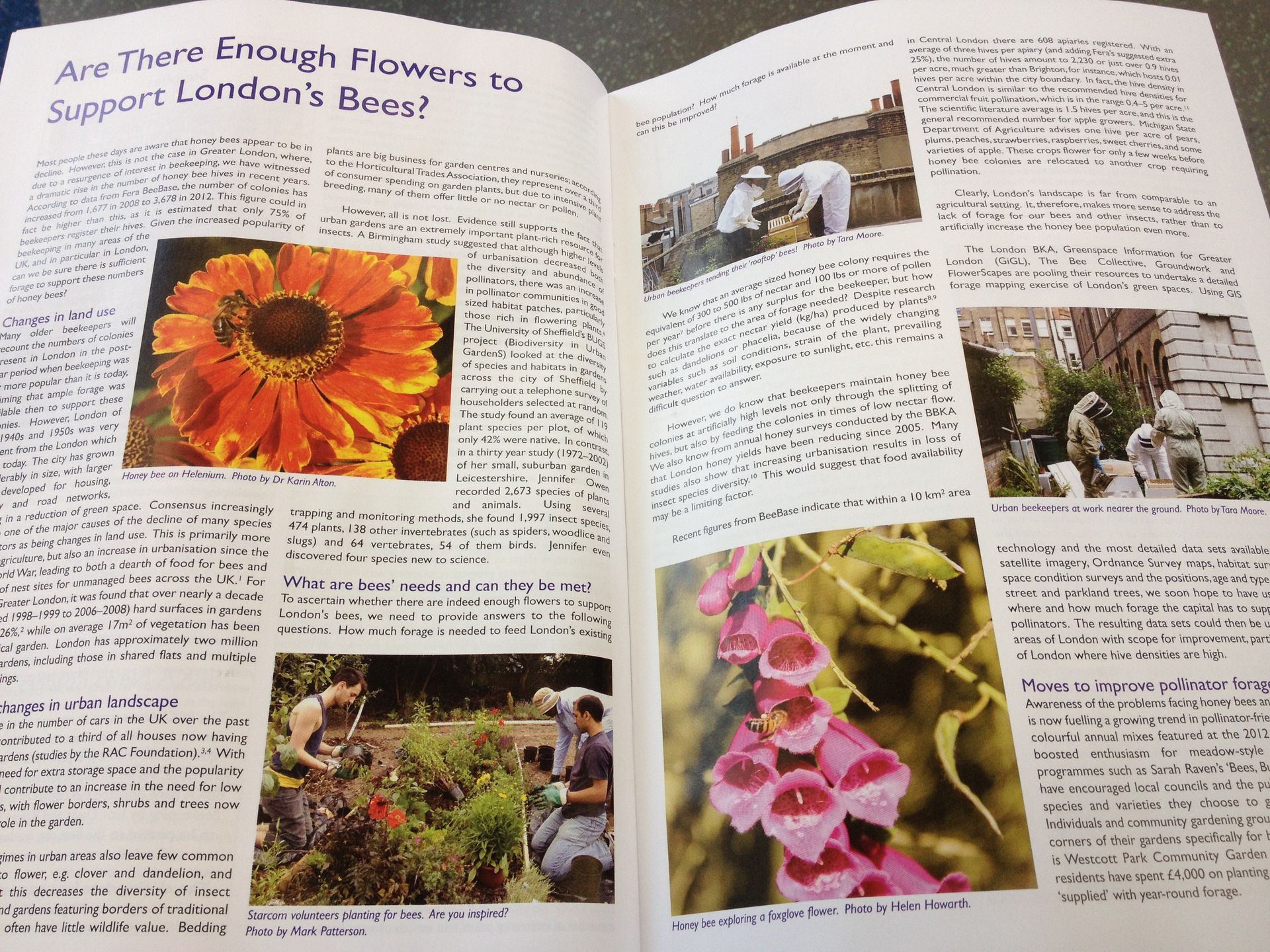
Above: An article featured in BBKA News co-authored by our senior Consultant Mark
Above: in spring 2015 we worked with the RSPB to rear, train and handle Buff Tailed Bumble Bees featured in their 2015 'Give Nature a Home' campaign video which was broadcast nationwide on Television. Several weeks of work went into rearing the captive reared bees, training them to alight on nectar rewards provided by us. The actual filming took a day with several weeks of post production before the video was released. Our bees are only visible for a brief moment near the end of the film where they can be seen buzzing around some blue Echium flowers.
